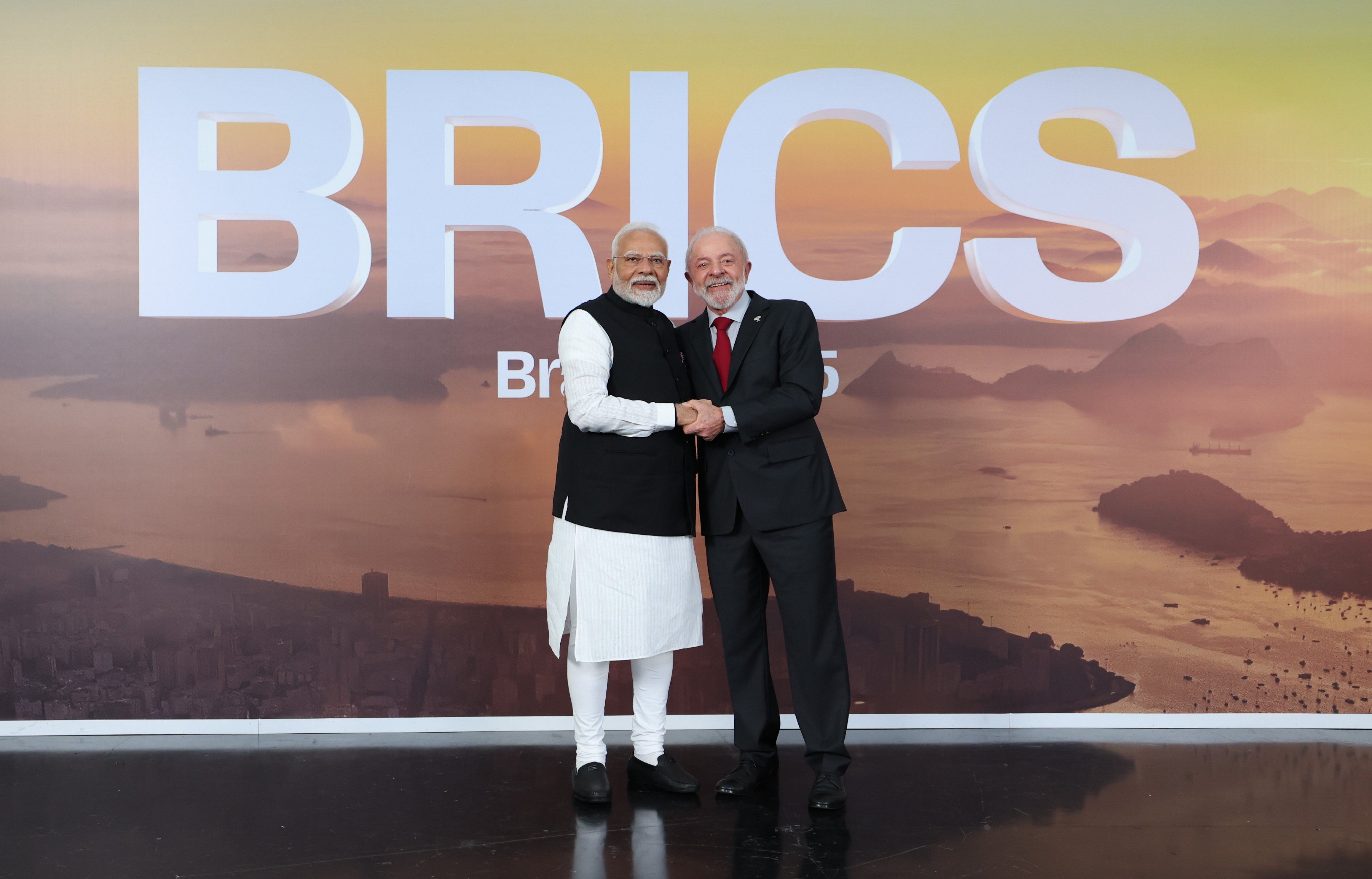BRICS: Indian PM Modi Slams Global Double Standards, Calls for Zero Tolerance on Terrorism
Indian Prime Minister Narendra Modi delivered a scathing critique of outdated global institutions and the persistent marginalisation of the Global South during his address at the 17th BRICS Summit in Rio de Janeiro, Brazil.
Speaking at two high-level sessions—on reforming global governance and on multilateralism, economy, and artificial intelligence—Modi underscored the urgent need to overhaul legacy international bodies such as the United Nations Security Council, the IMF, World Bank, and WTO.
 |
| Image Source: PMNaMo on X |
He warned that 20th-century institutions could not be expected to resolve 21st-century challenges and described their current configuration as obsolete and disconnected.
“Without the Global South, global institutions are like a mobile phone that may have a SIM card but no network,” he said, adding, “21st-century software cannot run on a 20th-century typewriter.”
Modi’s remarks came in the context of a wider discussion on inclusivity, peace, and development at the BRICS forum, which is increasingly positioning itself as an alternative voice for emerging powers.
He emphasised that countries representing two-thirds of humanity continue to be denied meaningful participation in decision-making bodies, even when they contribute significantly to the global economy.
“The Global South has often been a victim of double standards,” he declared. “On pressing issues like climate finance, sustainable development and technology access, they have received nothing more than token gestures.”
On the issue of terrorism, Modi struck a firm and uncompromising tone, and cited the April 2025 terror attack in Pahalgam, which killed innocent civilians. He described the terrorist act as not just an attack on India but on the shared values of humanity.
“There is no room for double standards. If any country provides direct or indirect support to terrorism, it must pay the price,” he said. Stressing that terrorism remains one of the gravest threats facing the global order, he called for united BRICS action and global sanctions against perpetrators and their backers.
Modi thanked the summit leaders for unequivocally condemning the Pahalgam terrorist attack and urged zero tolerance in global anti-terror efforts. “We cannot weigh victims and perpetrators on the same scale,” he said, and restated India’s demand for a globally consistent stance on terrorism.
The Indian Prime Minister also used the summit platform to present a forward-looking agenda for BRICS cooperation. He proposed that the BRICS New Development Bank operate on a demand-driven, sustainable financing model and suggested the creation of a global South science and research repository.
He also highlighted the strategic importance of securing supply chains for critical minerals and called for a balanced, ethical approach to Artificial Intelligence—one that ensures responsible innovation while addressing governance challenges.
Noting the rapid pace of AI evolution, Modi pointed out the stark contrast with global institutions that “haven’t undergone an update even once in eighty years.”
Applauding the recent expansion of BRICS, which now includes new member nations, Modi said the bloc’s willingness to evolve must serve as a model for other global institutions. “Now we need to show the same resolve for reforms in the UN Security Council, WTO, and multilateral development banks,” he said.
Modi’s speech resonated as a call for realism, responsibility, and reform. Reaffirming India's deep-rooted belief in peace, dialogue, and diplomacy—while warning against any tolerance for aggression or terror—Modi positioned India as a principled but pragmatic voice on the global stage.
